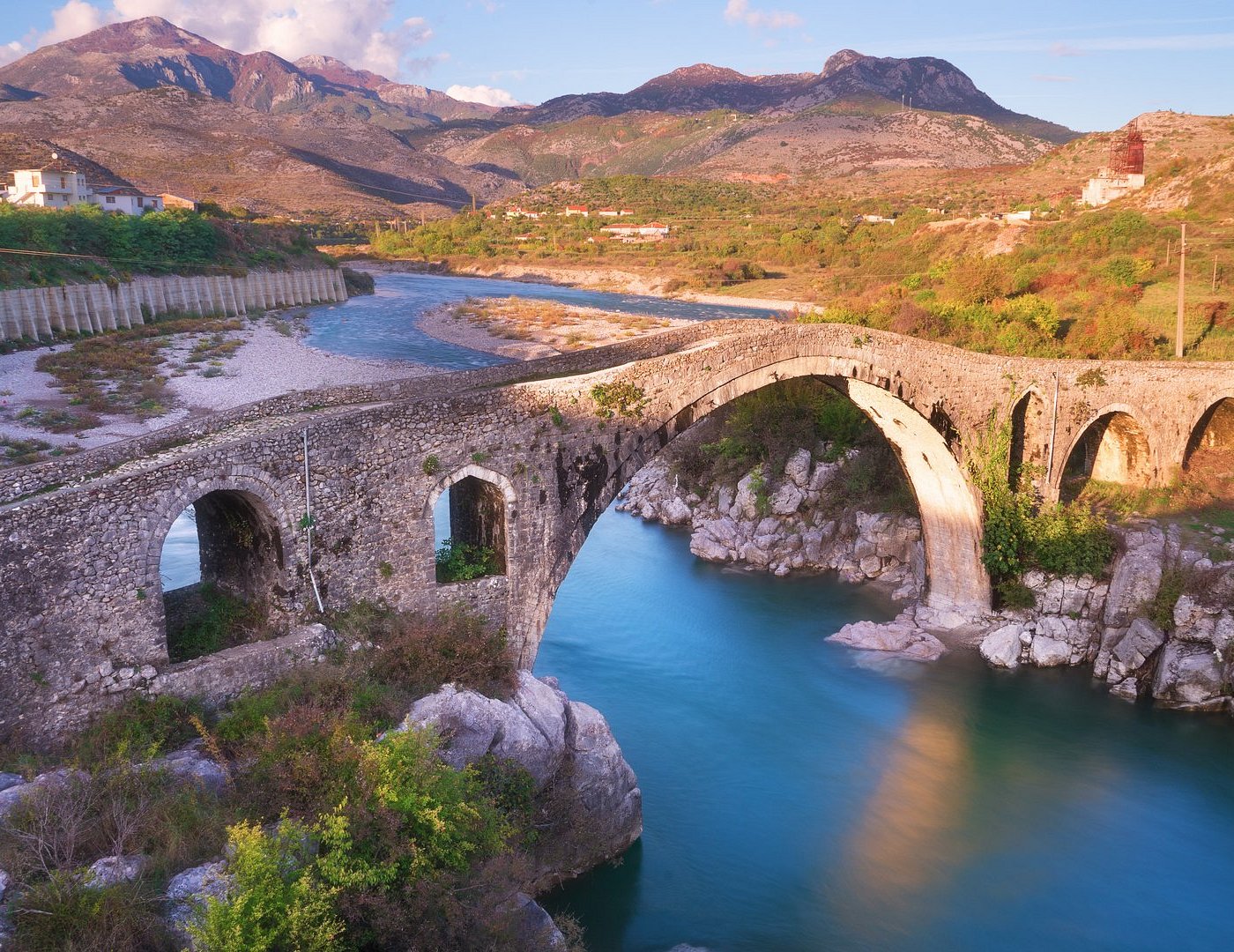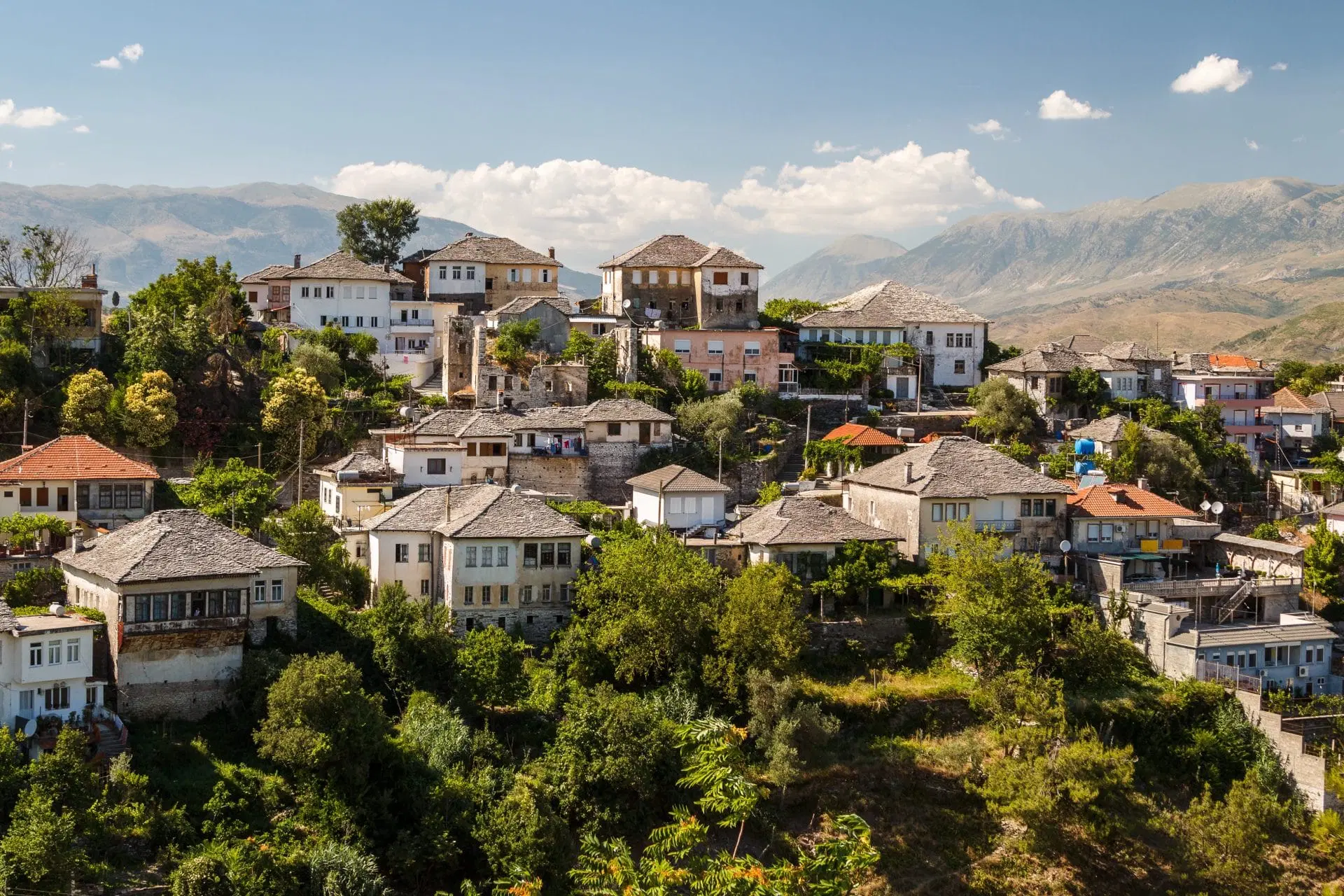



Gjirokastër is a city in southern Albania and the seat of Gjirokastër County and Gjirokastër Municipality. It is located in a valley between the Gjerë mountains and the Drino, at 300 metres above sea level. Its old town is a UNESCO World Heritage Site. Wikipedia
April to June and September to October: Pleasant weather, ideal for walking and sightseeing.
July and August: Hot but lively, especially during festivals. Evenings are cooler and enjoyable.
From Tirana: Around 3–4 hours by car or bus through scenic mountain routes.
Also accessible from Saranda (1.5–2 hours) and Berat (about 3 hours).
Best reached by car or long-distance bus — roads are improving, but still winding in places.
Gjirokastër Castle: Dominates the city with sweeping views over the Drino Valley. Inside, find a military museum, prison exhibits, and even a U.S. fighter plane on display.
Ethnographic Museum: Housed in the former home of Enver Hoxha (Albania’s communist dictator), showcasing traditional life and furniture.
Historic Ottoman Houses: Like Zekate House or Skenduli House — beautifully preserved with original furnishings and architecture.
Old Bazaar (Pazari i Vjetër): Cobblestone streets lined with craft shops, textiles, woodwork, and cafés.
Obelisk of Education: Symbolizing Albania’s first school, with panoramic city views.
Explore the old bazaar and pick up handmade crafts and souvenirs.
Visit traditional homes to see 19th-century interiors, kitchens, and hospitality rooms.
Walk up to the castle for the best city views and a sense of Gjirokastër’s past.
Enjoy evening walks through the steep, stone-paved lanes.
Attend the Gjirokastër Folk Festival (every 5 years) or summer cultural events with live music and dance.
Charming stone guesthouses and boutique hotels in the old town, often inside converted historic homes.
Family-run B&Bs offer cozy, affordable stays with home-cooked meals.
Some stays include views over the valley, castle, or bazaar.
Try traditional dishes like qifqi (herbed rice balls), pasha qofte (meatball soup), and oshaf (fig dessert with sheep’s milk).
Grilled lamb, cheeses, and local olive oil are regional specialties.
Family-owned restaurants and taverns serve food in beautifully preserved homes or terraces.
Don’t miss a shot of raki (grape brandy) after dinner — often homemade.
Gjirokastër is steeped in Albanian pride, folklore, and traditions.
Locals are hospitable and often eager to share stories about their town’s history.
The town is known for its musical heritage, especially polyphonic singing (a UNESCO cultural treasure).
Life moves slowly here — perfect for travelers who enjoy depth and atmosphere over fast-paced tourism.